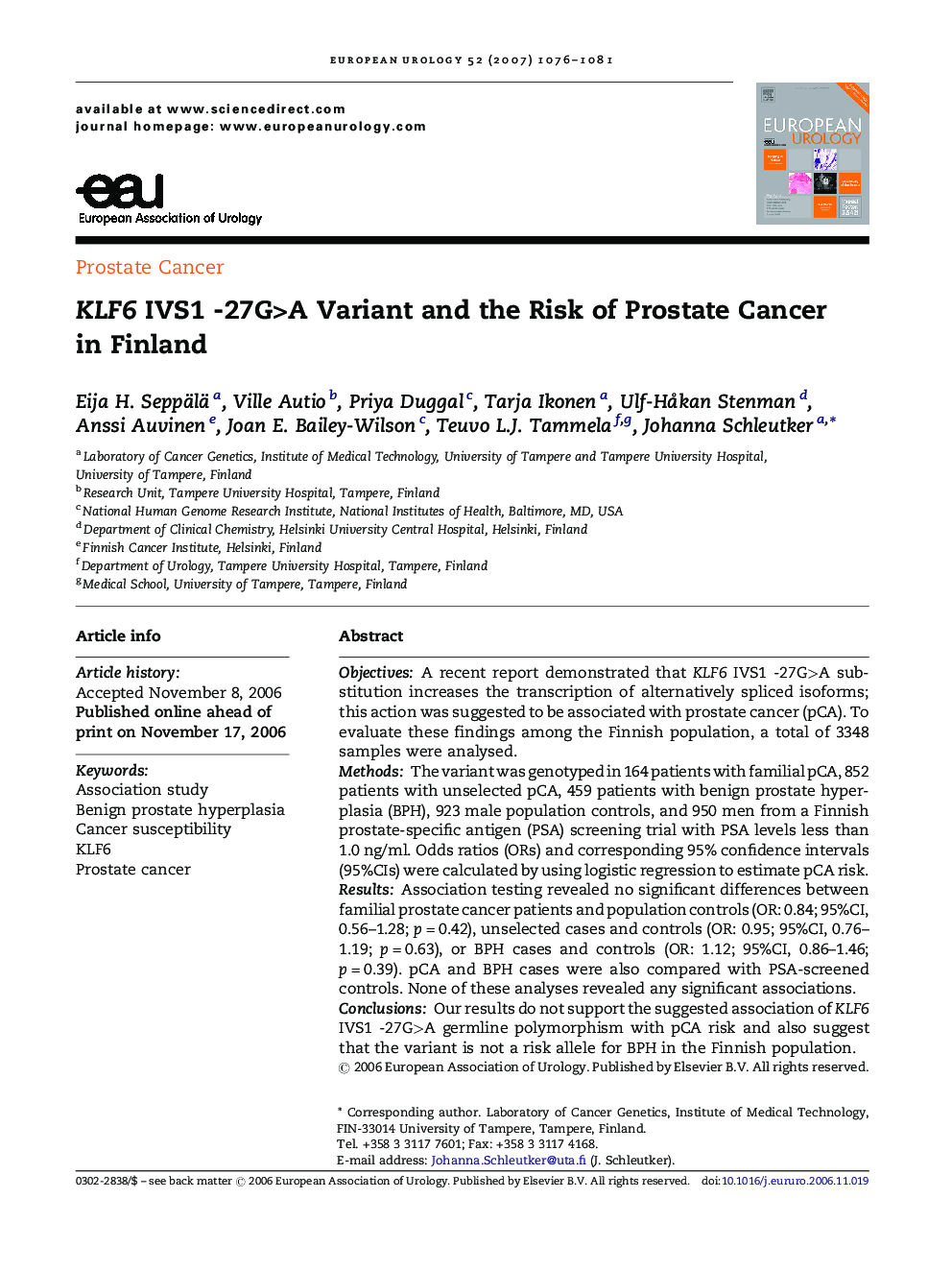| Article ID | Journal | Published Year | Pages | File Type |
|---|---|---|---|---|
| 3923345 | European Urology | 2007 | 6 Pages |
ObjectivesA recent report demonstrated that KLF6 IVS1 -27G>A substitution increases the transcription of alternatively spliced isoforms; this action was suggested to be associated with prostate cancer (pCA). To evaluate these findings among the Finnish population, a total of 3348 samples were analysed.MethodsThe variant was genotyped in 164 patients with familial pCA, 852 patients with unselected pCA, 459 patients with benign prostate hyperplasia (BPH), 923 male population controls, and 950 men from a Finnish prostate-specific antigen (PSA) screening trial with PSA levels less than 1.0 ng/ml. Odds ratios (ORs) and corresponding 95% confidence intervals (95%CIs) were calculated by using logistic regression to estimate pCA risk.ResultsAssociation testing revealed no significant differences between familial prostate cancer patients and population controls (OR: 0.84; 95%CI, 0.56–1.28; p = 0.42), unselected cases and controls (OR: 0.95; 95%CI, 0.76–1.19; p = 0.63), or BPH cases and controls (OR: 1.12; 95%CI, 0.86–1.46; p = 0.39). pCA and BPH cases were also compared with PSA-screened controls. None of these analyses revealed any significant associations.ConclusionsOur results do not support the suggested association of KLF6 IVS1 -27G>A germline polymorphism with pCA risk and also suggest that the variant is not a risk allele for BPH in the Finnish population.
